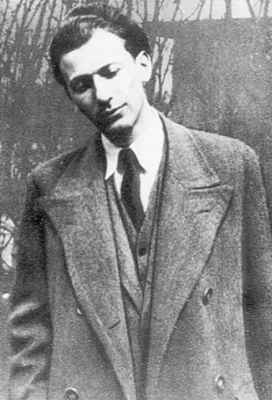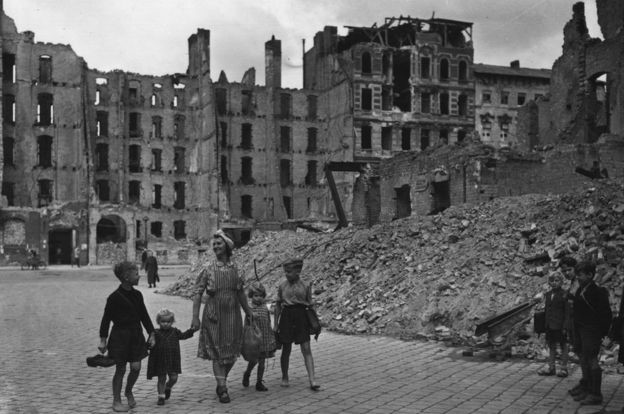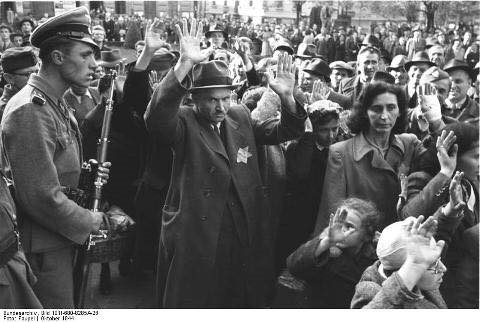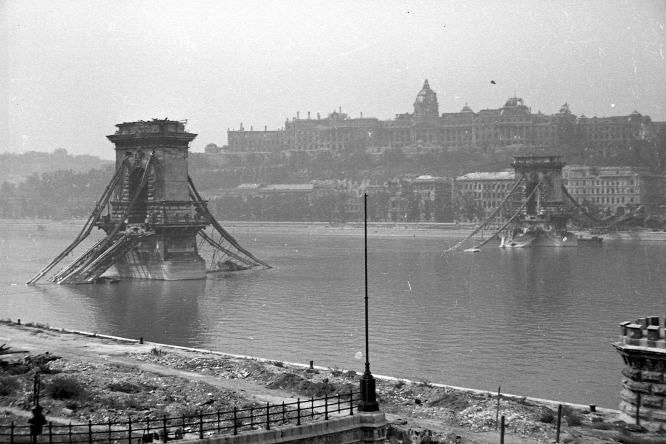translated from the Hungarian & edited
by Thomas Ország-Land (September 2016)

Miklós Radnóti (1909-1944), probably the greatest among the world’s Holocaust poets. He was virtually unknown when he was murdered as a Jew by the Hungarian Army at the close of WW2. His best poems recovered from a mass grave were found on his body.
1.
WALK ABOUT, CONDEMNED TO DIE
Just walk about, condemned to die!
A cat screams from the gale-torn shrubs,
a tumbling avenue of trees
confronts you and the roadway arches
its back in fear: its dust turns pale.
Just shrivel up, you autumn leaves!
and shrivel up, you dreadful world!
The cold falls hissing from the sky,
the passing wild geese drop their shadows
across the stiffened, rusty grass.
Oh poet, now you must be pure
like those who dwell on vast and windswept
snow-capped peaks, and innocent,
as innocent as babies pictured
in pious paintings of the past
… and endure, like bleeding, wounded
wolves that trek through hostile grounds.

Berlin, 1945
2.
OLD PRISONS
The stillness of old prisons, true, sublime
old fashioned suffering and noble death,
poetic death… heroic, lofty view,
composed and measured talk and due attention –
How far you are! Oblivion receives
one who still dares to move. The fog descends.
Reality has lost its form and content,
and, like a shattered pot, its strews about
its shards: untrue, incoherent perceptions.
What will become of you who would discuss,
while still allowed to live, reality
in formal terms, and teach the art of judgment?
I would still teach, though all has burst asunder.
I sit. I stare. No more is left to do.

Budapest, 1944
3.
THE FIFTH ECLOGUE
–In memoriam György Bálint*
A Fragment
My dear friend, how I shuddered and shivered from the chill
of this poem, how I dreaded the news about you… How I fled from it!
I scribbled only broken lines.
And I tried to write
on other themes once more: but in vain! this frightful, secretive
night commands: You must speak of him.
I flinch, but the voice
goes silent again like the slain in the pastures of Ukraine.
You’re missing.
And even this autumn has brought no news
of you.
Grimly, the winter whispers its prophecy out in the woods.
Heavy clouds are drawn across the sky. They halt, full of snow.
You’re maybe alive, who knows? –
I do not now,
and I rage
no longer when people shrug and cover their faces in pain.
No-one can tell.
But… are you alive? Or, might you be wounded,
walking the forest floor in the heady fragrance of mud,
or have you become but a scent?…
Snowflakes light on the fields.
Missing. This news: what a blow!
My heart beats a numb response.
Between my two ribs arises a throbbing pain at such times
when I recall your words, heard long ago, with such sharpness,
and I sense your physical substance with such precision as though
you were dead –
And even today… I still cannot write about you!
==============================================
* György Báint (1906-1943) writer, translator & critic, enlisted in a slave-labour battalion attached to the Hungarian invasion force in Ukraine, listed missing in 1943.

Budapest, 1945
4.
SHALL I THUS WONDER…?
I lived… although I made a feeble show of life,
and I assumed that I’d be buried here in time
as clods of earth and rocks and years piled high above,
that while the maggot-eaten flesh disintegrates
the blind and naked bones must shiver in the dark…
I understood all that – yet hoped that, in the light,
a scuttling distant future would leaf through my lines
despite my dust still sinking deeper in the ground.
I knew. But tell me! Has the work, the work survived?
____________________________________________

To comment on these poems, please click here.
To help New English Review continue to publish translations of original poetry such as this, please click here.
If you enjoyed these poems and want to read more by Thomas Ország-Land, please click here.
- Like
- Digg
- Del
- Tumblr
- VKontakte
- Buffer
- Love This
- Odnoklassniki
- Meneame
- Blogger
- Amazon
- Yahoo Mail
- Gmail
- AOL
- Newsvine
- HackerNews
- Evernote
- MySpace
- Mail.ru
- Viadeo
- Line
- Comments
- Yummly
- SMS
- Viber
- Telegram
- Subscribe
- Skype
- Facebook Messenger
- Kakao
- LiveJournal
- Yammer
- Edgar
- Fintel
- Mix
- Instapaper
- Copy Link









